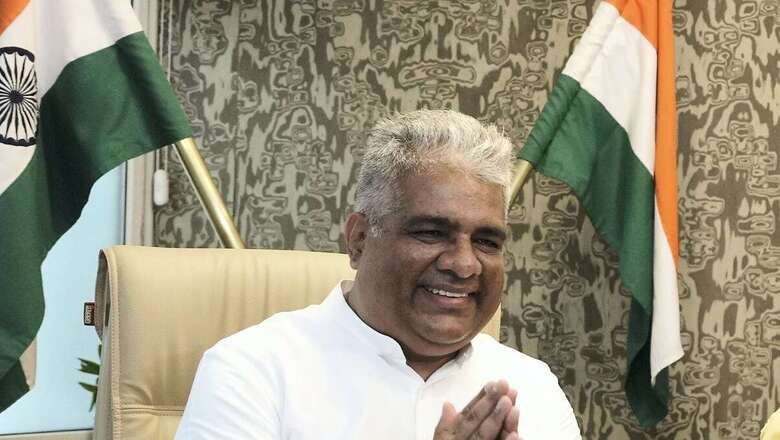
views
Bhupender Yadav has returned to the Cabinet to begin his second term as the Minister of Environment, Forests and Climate Change in what will be a decisive period for global climate action. Countries are required to ratchet up and submit their updated national climate pledges to the UN by next year, as the world slowly inches towards 1.5℃ warming.
India has already committed to a Net Zero goal of 2070 and vowed to reduce its emission intensity by 45% by 2030. The short-term goal also includes fulfilling at least half of its energy requirements through renewable energy by 2030, and reaching a non-fossil fuel energy capacity of 500 GW by the end of this decade.
A Member of Parliament (MP) from Alwar, Yadav had represented India in the recently held UN Climate Summit in the UAE, where he reiterated the government’s call for equity and climate justice. Delivering the national statement at the high-level segment, he had urged the developed countries to take the lead in ambitious climate action.
“India is leading the world in climate action and we will continue to work as the voice of the global south towards climate justice and climate resilience,” said Yadav on Monday. As a coal-dependent economy, India has continued to highlight that the energy transition should be just and equitable.
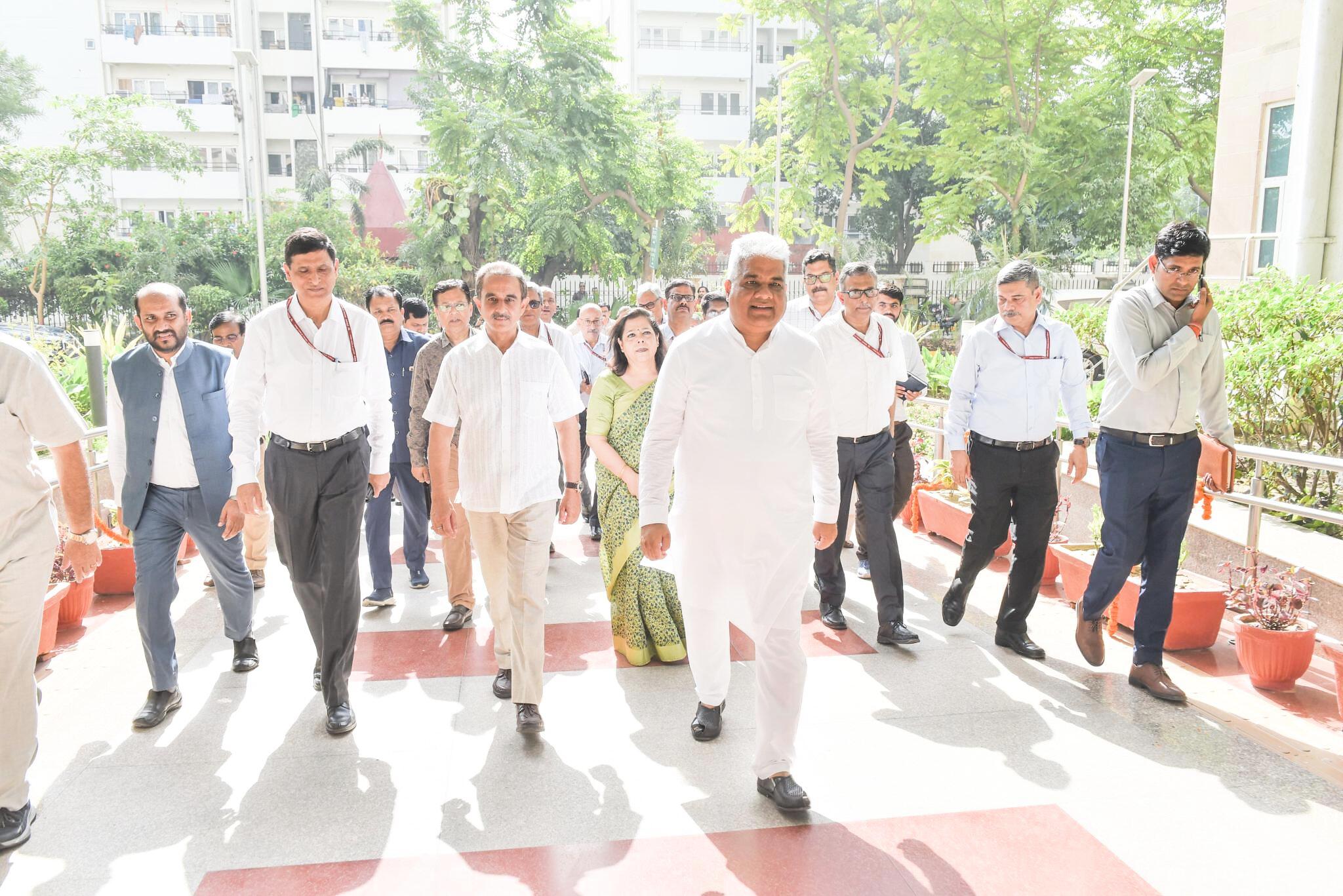
INDIA’S CLIMATE AGENDA, CLEAN ENERGY PUSH
Experts hope that the National Democratic Alliance (NDA) government can provide continuity on positive measures against climate change including push towards renewables, decarbonising of heavy industries and a switch to electric vehicles, while also ensuring a more climate-resilient development.
“We look forward to India’s stability on the climate agenda. India must take steady strides to reaching net zero soon in collaboration with state governments and businesses. We have seen a great willingness among businesses to source renewable electricity, but policy and regulatory gaps are making this transition challenging. We therefore urge the incoming government to do all they can to make their term a period of solving hard problems, and rewriting the narrative on climate action,” said Dr Divya Sharma, India Executive Director, Climate Group.
The Ministry of New and Renewable Energy Ministry, which steers the clean energy push, will now be led by Union Minister Prahlad Joshi, who earlier helmed the Ministry of Coal and Mines. The government had recently announced its ambitious scheme – PM Surya Ghar – to popularise rooftop solar across the country. The Ministry is also steering the National Green Hydrogen Mission to decarbonise the economy.
“More fiscal as well as policy support to build the clean energy ecosystem should be big priority for the government. To ensure that transition is just and equitable, the government needs to direct financial resources to states to help shift away from reliance on revenues from fossil fuels which are becoming expensive and to help impacted communities and workers,” said Vibhuti Garg, Director, South Asia, Institute for Energy Economics and Financial Analysis (IEEFA). “All eyes are now on the budget and how the government is able to balance the need for economic growth and sustainability.”
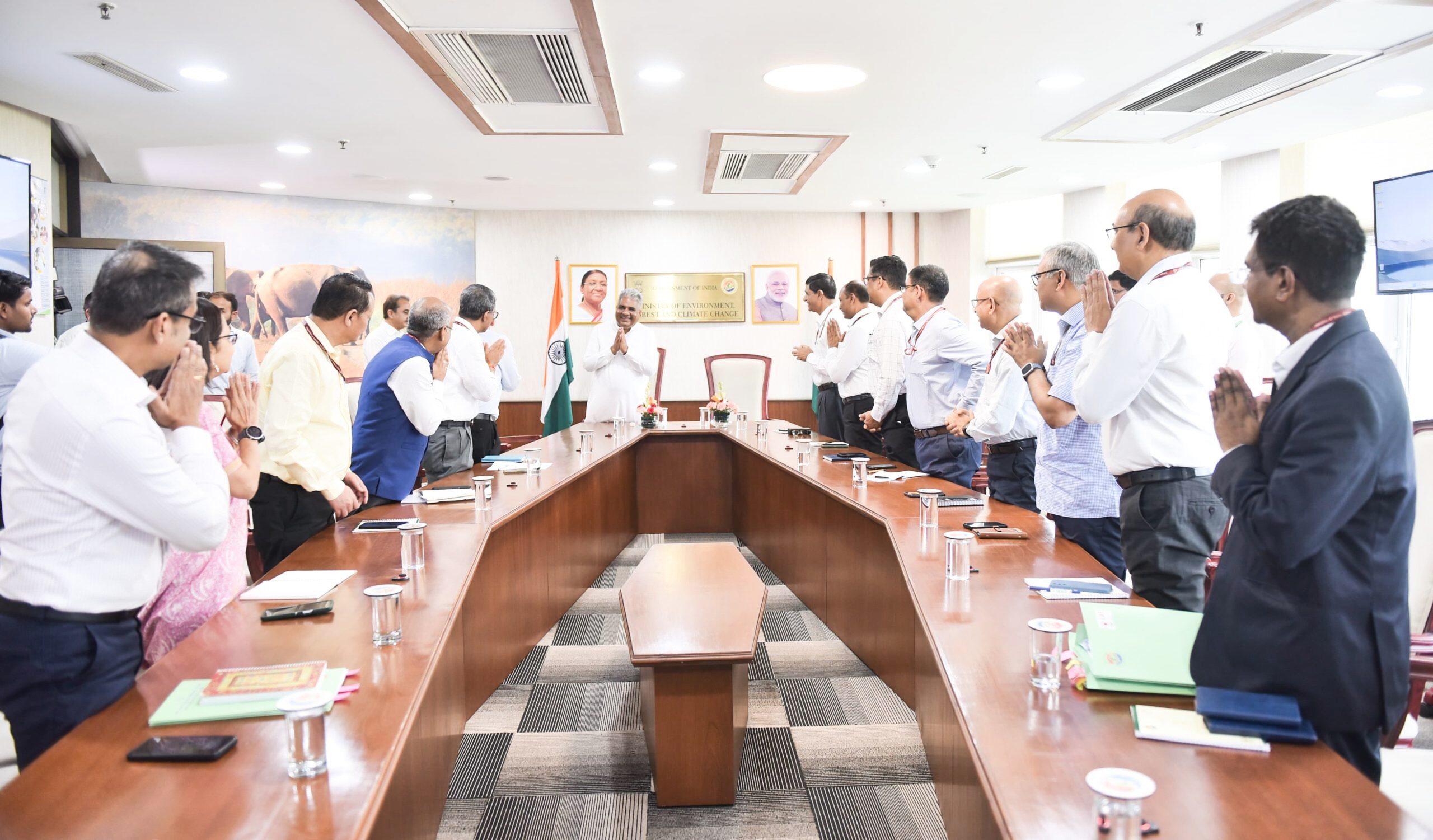
SAFEGUARDING DEPLETING FORESTS, WILDLIFE
The new government is not only expected to take forward India’s climate action agenda, but also safeguard its critical forests and wildlife and combat rising pollution levels in cities and rivers. Merely 21.7% of India’s geographical area is covered by forests. However, over the years, large tracts of the forest land have been diverted for other uses — infrastructure projects, industries, agriculture and habitations. The diversion of forest land nearly doubled from 6,000 hectares to 10,000 hectares a year since 2014. A total 52,932.06 ha of forest land has been diverted from 2019 to 2022, as told to Parliament.
Five years into the launch of the government’s ambitious National Clean Air Programme (NCAP), air pollution levels in most Indian cities still exceed national standards and fare worse in WHO’s globally-recognized air quality guidelines, showed latest reports. India ranks 112th among 166 countries in the latest preparedness report on Sustainable Development Goals (SDGs) which include clean water and sanitation.
Meanwhile, the Union Ministry of Jal Shakti, which is also steering the government’s Har Ghar Jal mission to provide tap water to every household, will be led by C R Patil, who was the Bharatiya Janata Party’s (BJP) Gujarat state unit president. “I will work towards conservation and enhancement of the water resources of the country,” he said on Monday.













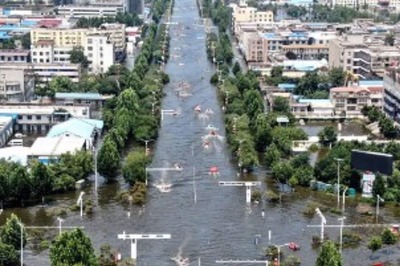
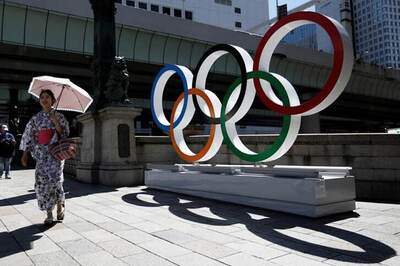
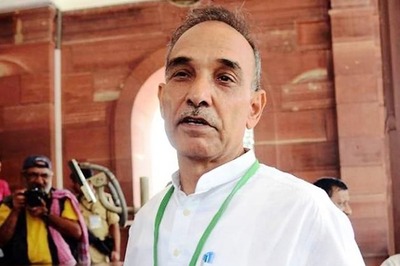




Comments
0 comment